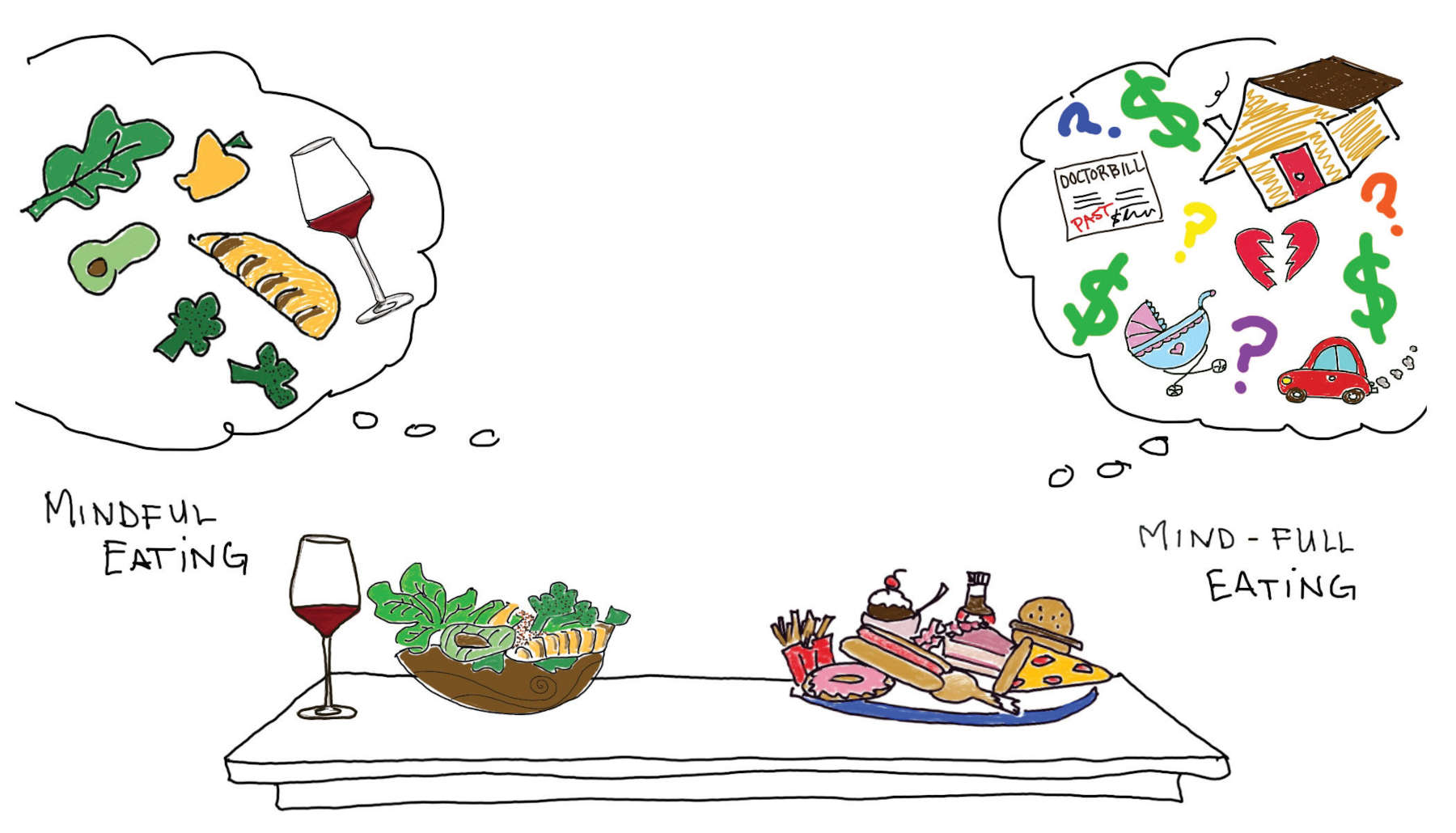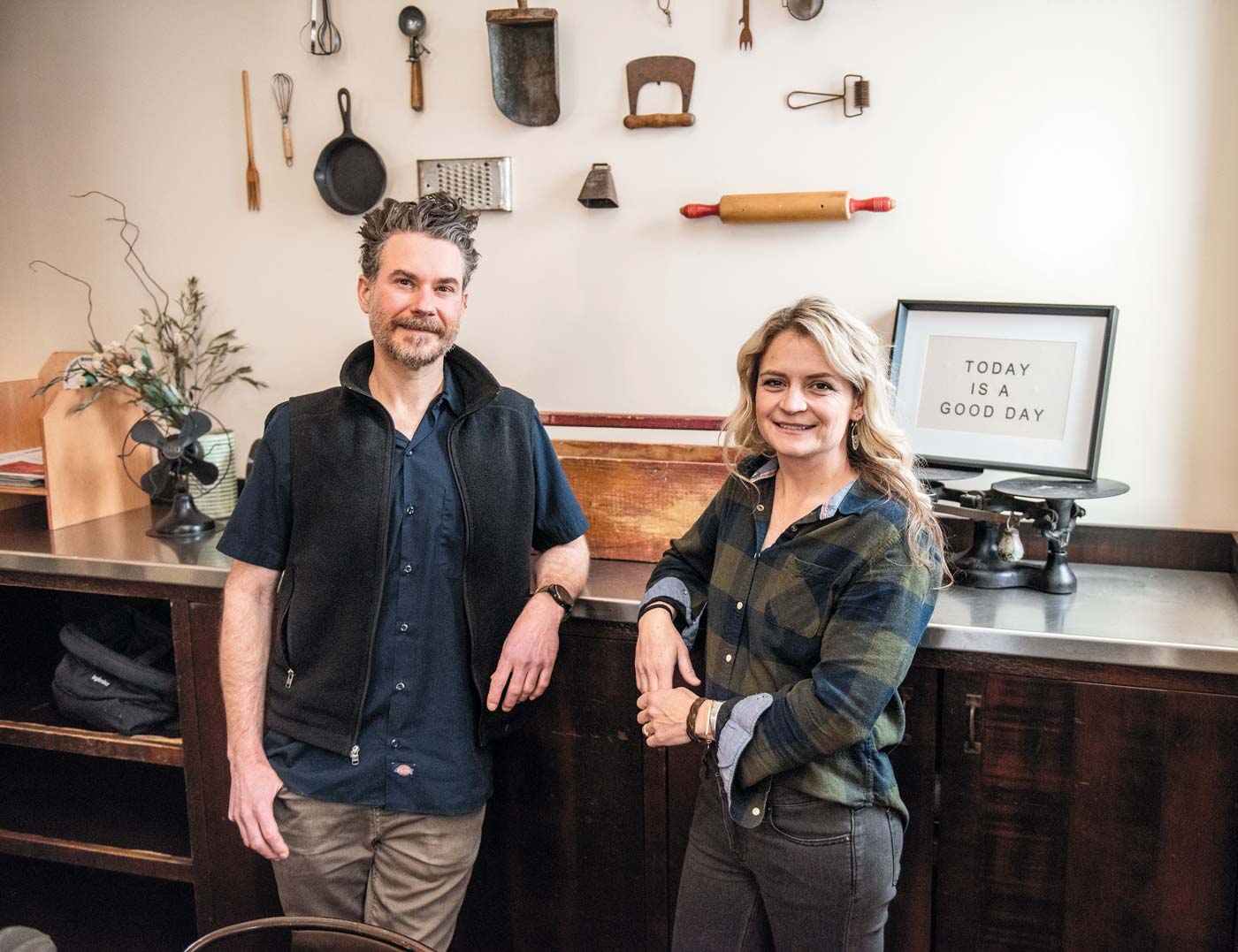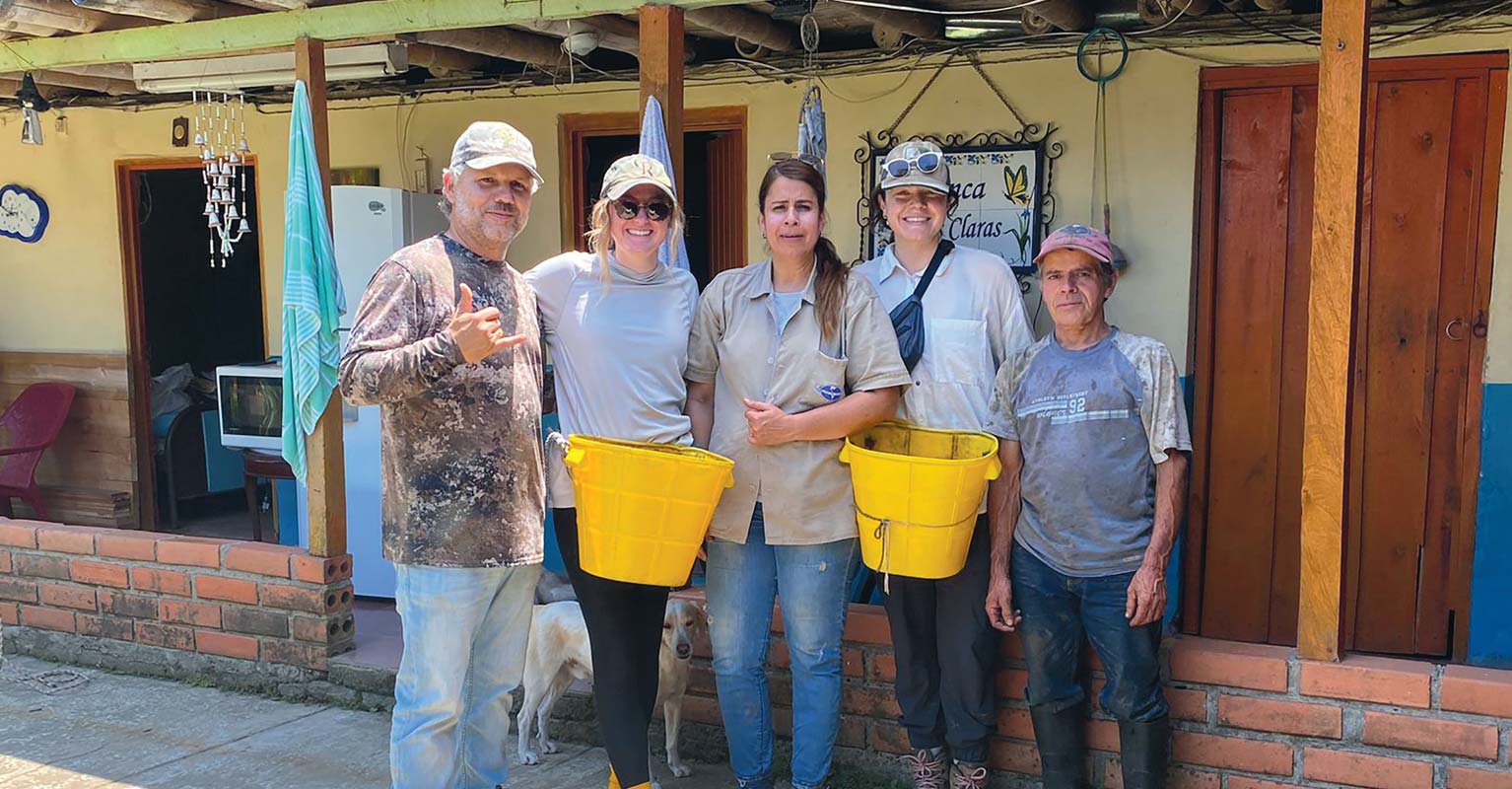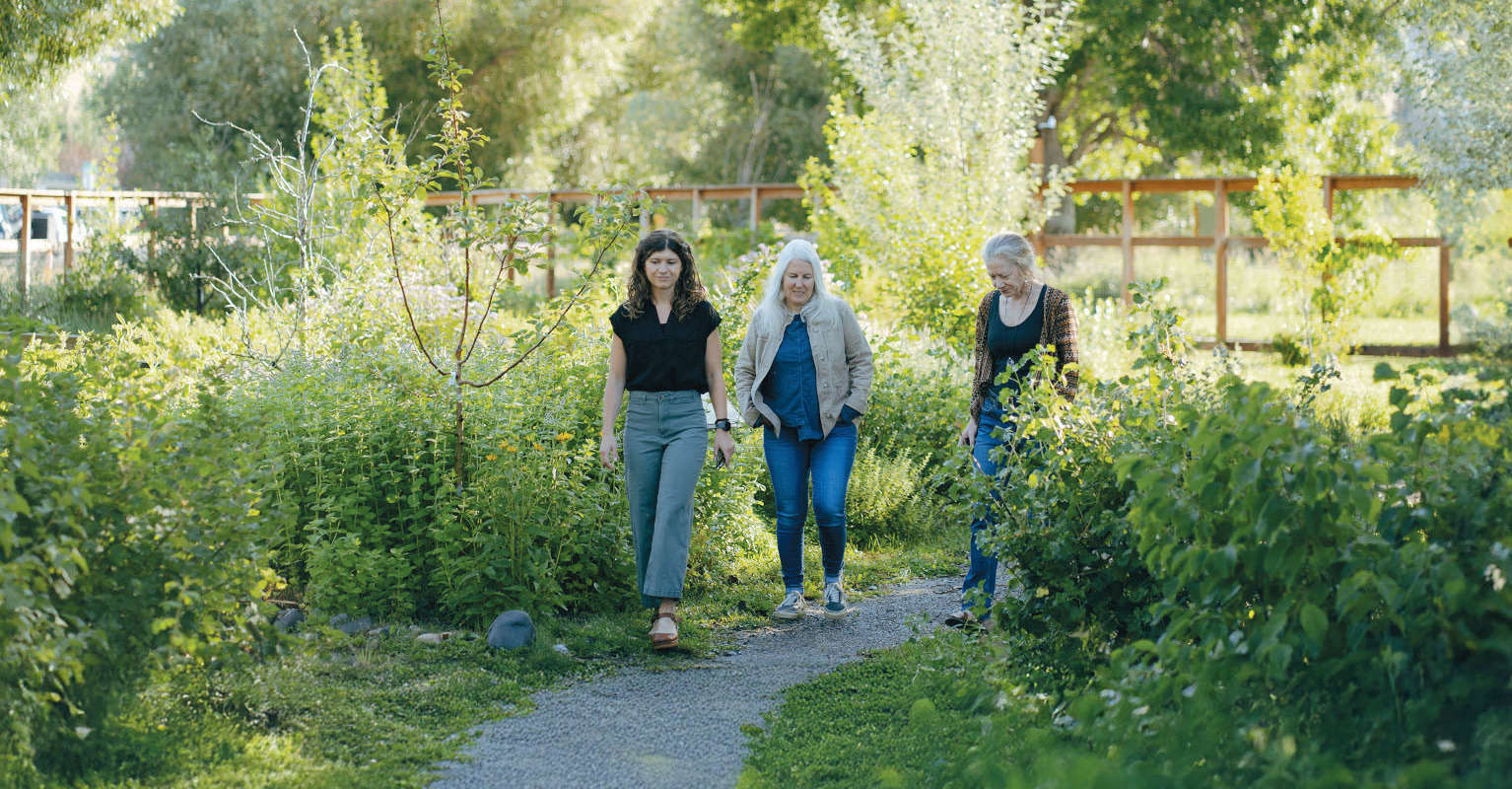
Jeanne Allgood Gaisford and I both love cooking and eat a lot of kale but when life gets crazy, we turn to food to cope—a bag of chips when life gets stressful, mini peanut butter cups when schedules become too much. Mindless eating, checked-out eating, full-on binges, “sport eating,” spoons of ice cream straight from the container … it happens.
The point is: How do you feel in your body? I’m not talking about your jeans from 10 (or 20) years ago not fitting quite right. Bodies change. Sometimes we need new jeans.
Ten years ago, I put an end to a lifetime of compulsive dieting. Thanks to long shirts and high waistbands I didn’t notice the extra pounds sneaking onto my body. But this year’s blood labs got my attention—high LDL cholesterol, blood glucose trending upward. I didn’t feel good in my body either. So, I asked: What am I willing to do about it?
No way would I sacrifice my mental health gains. I knew and could feel the interdependence of mental and physical health. Five years ago, I persuaded the founders of Intuitive Eating to accept me, a chef, into their training program for healthcare professionals. I learned about interoception—our ability to tune into our body’s signals, for example hunger, fullness, and satiety—and how obsessing about diet and weight loss drives a wedge between ourselves and this essential bodily awareness.
When I stopped dieting, I approached eating like this: Choose what you really want to eat, put it on a plate, sit down, enjoy it, and notice: Do you like it? How does it make you feel? Suddenly free from 35 years of rules swirling around in my brain, eating became a joyful, sensually rich, in-the-moment experience. Gone was my constant state of monitoring compliance and the inevitable cycle of rebellion and guilt. Secret stashes and secret eating were no more. Eating was out in the open, on the table, and time bound. After a satisfying meal, my brain could stop thinking about food. It felt like a miracle.
I am grateful and happy that my love of food has become a delightful part of every day. Sure, it’s fun to drink wine and nibble on this and that while cooking dinner, and I often do just that. But to feel my best, I try not to overdo it with current pleasures, especially those enjoyed while standing up in the kitchen. For me, mindfulness is about portion control, not all-or-nothing thinking, adding nutritious and delicious food, not taking away my glass of wine or the cream in my morning coffee. My doctor prescribed, “Go nuts with all the colorful produce! Yes, move more and build muscle, but do it in a way that brings you joy.” That I can do. I’m doing it. And it sure feels good.




